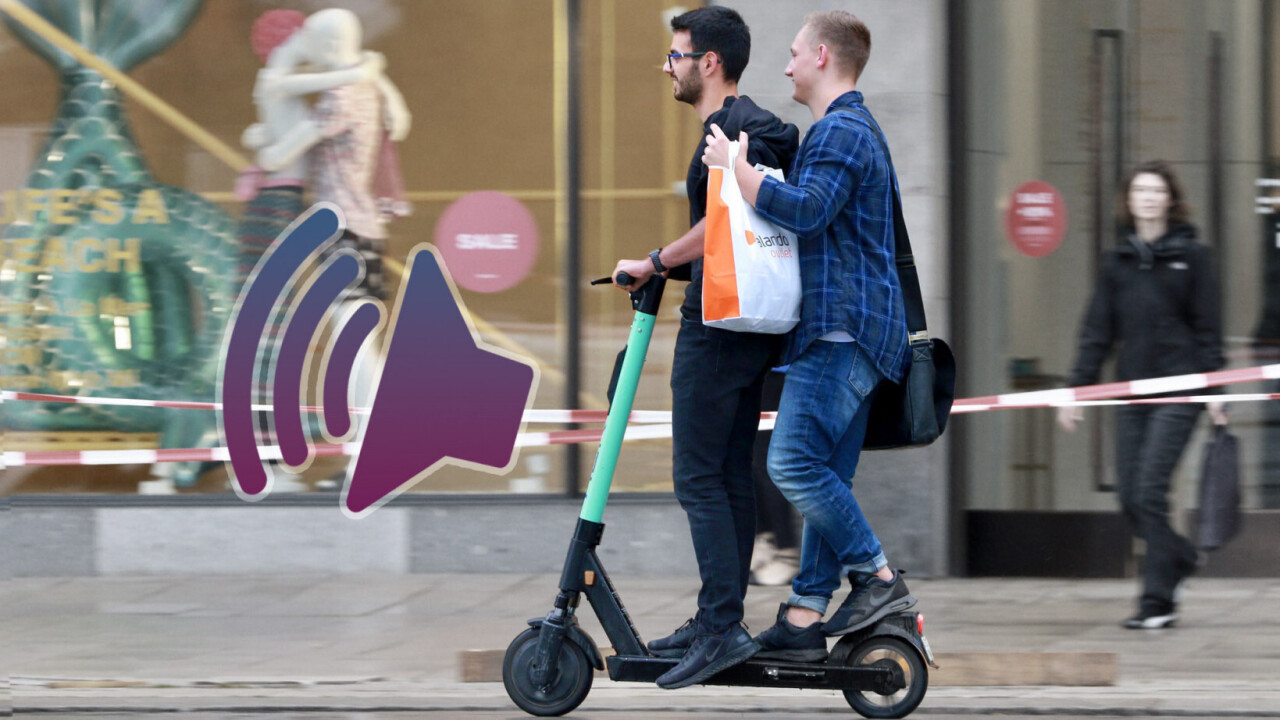
You might be irritated by the sight of toppled escooters on the sidewalk or people riding them with a beer in hand (hallo, Berlin), there’s a bigger problem afoot — how they sound, or rather, don’t.
Escooter motors are silent, making it difficult for blind and partially sighted people to detect when a vehicle is approaching.
But now, they are being given their very own sound.
This week, the University of College London’s specialist Person-Environment-Activity Research Laboratory (PEARL), joined forces with London escooter operators TIER, Lime, and Dott. They’re working together to research and develop a ‘universal sound’ for rental escooters. This sound will alert pedestrians and other roads users of approaching escooters.
The joint initiative is an industry first and follows extended engagement with disability experts and access consultants. There are currently no standards or regulations in place for audible escooter alerts.

How do researchers develop an escooter sound?
The researchers plan to test a range of combinations of sounds and environments at UCL PEARL with people who are less likely to detect escooters nearby.
The sound will encompass the needs of people with sight loss, hearing loss, and neurodiverse conditions.
According to Dr. Antonio J Torija Martinez, Principal Investigator at the University of Salford, researchers have developed a standalone system to generate sound signals according to the scooter’s operating conditions, such as vehicle speed, and investigated pedestrian awareness of an approaching scooter with a series of added warning sounds.
Notably, there’s also an intention not to add sound pollution to the already loud city streets.
The researchers aim to produce the sound and have it tested by operators in London this year. This will extend to the attainment of an industry-standard, ultimately scaling up to other cities in the UK and beyond.
A good start to improving the relationship between pedestrians and escooters
Ok, so this won’t solve the problem of visually impaired people tripping over abandoned scooters, but it will help reduce collisions. Personally, I’d like to see an escooter make a noxious sound when escooters exhibit noxious behavior like double riding, like a badge of shame. I wonder what other scenarios it could be used in?

What sound do you think an escooter should make?
I’ve been thinking about what noise an approaching escooter should make. It needs to be distinct enough to not blur into the cacophony of the cityscape, but also suitably pitched for those who have lost the upper tiers of their hearing.
Also, it needs to not make neurodiverse people feel more stressed than they should be.
This is a challenge that has already been faced by EV automakers, all of whom have chosen their own sound to denote a traveling EV. According to the team at TNW, some sounds are better than others. The team ranks the sound of the Porsche Taycan Turbo S as the best out of a fairly bad lot, with the Rivian Prime delivery van worthy of being killed with fire.
Then there’s this kinda stuff (shudder):
So, I think the sound would need to be something like this, but softer and still distinctive. It’s a definite challenge for the researchers.
Got a sound in mind? Let us know on Twitter.
Get the TNW newsletter
Get the most important tech news in your inbox each week.





